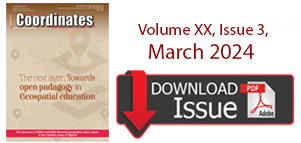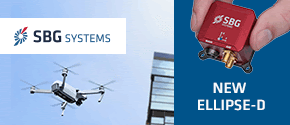| Galileo Update, News Archives | |
Satellite Navigation Event
Galileo Application Days, 3-5 March, kicks off the competition with a conference and an ‘Application Village’, where demonstrations will occur. The annual ESNC competition, or ‘Galileo Masters’ as it is also known, is designed to stimulate commercial applications using Europe’s satellite navigation programmes. The event is being organised by the GSA, and the Application Centre for Satellite Navigation in Oberpfaffenhofen (the ‘Galileo Masters’), and is sponsored by the ESA Technology Transfer Programme. The aim is to promote the competition in conjunction with other investments the European Union and ESA make in satellite navigation research.
“With EGNOS in operation, and the development of Galileo progressing, Europe has demonstrated it can build advanced satellite-based infrastructures,” says Michel Bosco, Deputy Head of the satellite navigation applications unit in the European Commission. “Only when industry develops a wide variety of applications based on that infrastructure will Europe have met the challenge of being a world leader in GNSS.”
“This conference signals Europe’s take-off in that direction,” Bosco says. “All the ingredients are there for the conference to be a true forum. Delegates are coming with ideas to discuss and opinions to be challenged in the sessions. They will also come with demonstrators and real-life applications to show and to be tested in the Application Village.”
The event focuses on six main industry areas for development: location-based services, road applications, aviation, high precision applications (such as precision agriculture), social and public services, and application technologies like secure technologies and receivers.
About 40 demonstrations of innovative satellite navigation applications will be on public view in a unique ‘Application Village’ outside the Berlaymont building, the headquarters of the European Commission. Entry to the Application Village demonstrations is free and open to the public.
“The goal of Galileo Application Days is simple – to not only talk about the range of cutting-edge applications being developed in Europe, but to show them,” says GSA Executive Director Pedro Pedreira. “Preparing for Galileo requires both establishing the infrastructure in space and preparing for it on the ground, through fostering the development of new products and services that harness the many benefits offered by increasingly more accurate and reliable location and timing information.”
Visitors to the live demonstrations will get a chance to see new satellite navigation applications developed through the EU’s 7th Framework Programme for Research, the Galileo Masters Competition, the ESA Technology Transfer Programme, and national and regional initiatives.
The demonstrations will take place in areas of the Village designed to represent the use of satellite navigation under various scenarios. The relevant location-based service, maritime, road transport, leisure, health and agriculture-related demonstrations will occur in the ‘neighbourhood’, the ‘city’, the ‘port’, the ‘road’ and the ‘countryside’.
About 40 projects will be on display. For example, the IEGLO project, which has developed a hand-held GNSS tracking device for the elderly and those affected by Alzheimer’s, will be shown in the neighbourhood area. ImaGeo, an application to geo-tag photos through mobile EGNOS-enabled devices, will be in the city area. The ‘Galapagos’ project will demonstrate a positioning system for container tracking in the road and port areas.
Several special topic prizes are sponsored by organisations such as the GSA and ESA, and companies such as T-Systems and Navteq. Regional awards will be awarded by competition partner regions from Europe and around the world.
Thorsten Rudolph, Managing Director of the Application Centre for Satellite Navigation Oberpfaffenhofen (AZO), the competition’s organiser, says this year’s Galileo Masters will feature additional regional prizes.
The goal is to have about 20 partner regions from across Europe involved in the competition. Joining the European Network of Living Labs has given the competition a wider reach in academia and among younger researchers. Rudolph expects to achieve more than 300 entries to the competition as a result.
The concept for the launch in Brussels allows the work of many projects to be shown to the public and conference delegates, he says. “Showing the outcomes of research projects and allowing the public to have a look at the successful results is an important step forward for the competition.”
The afternoon of 4 March features three parallel sessions. One session will feature the use of satellite navigation in the social and public sector. The second session will focus on applications in the leisure, tourism and location-based sectors. The third will feature the aviation sector. The final morning session on 5 March continues with sessions on the road, high-precision applications and application technologies.
Galileo Application Days provides a unique opportunity for GNSS veterans and novices alike to see, touch, learn and experience the first great strides that have been achieved in this exciting emerging and technological area.
The European Satellite Navigation Competition is an international competition that awards the best ideas for innovative applications in satellite navigation. It has been held annually since 2004 under the patronage of the Bavarian State Ministry for Economic Affairs, Infrastructure, Transport, and Technology.











 (No Ratings Yet)
(No Ratings Yet)




Leave your response!